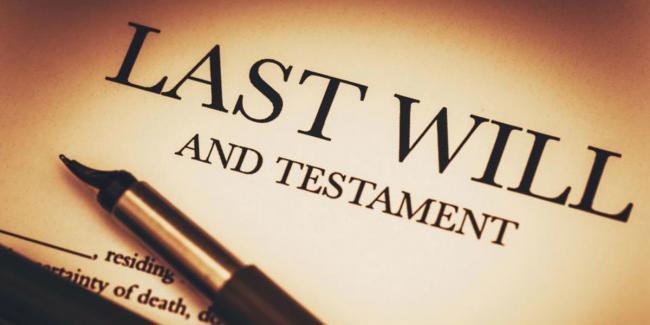Wills
The most common document used for estate planning, wills are legal documents that entail the creator’s wishes and directions regarding the distribution of their assets after their death. Your will and last testament can also be used to name legal guardians for minor children, designate an executor, create trusts, funeral wishes, etc.
In order to create a last will and testament, one has to be a legal adult i.e. they must be 18 years of age or older. Also, they should be in control of their mental faculties and of sound memory when creating and signing the will. If they are making a new will, the document should mention the revocation of the older versions. A valid will also require signatures of two witnesses and notarization. These practices are recommended for probate court.
Unlike trusts, wills are not executed privately. The executor (chosen by the testator or the probate court) will have to file the original will to the probate court and undergo the probate process, which may take months to wrap up, especially if it is contested. In the U.S., if the will’s testator-owned assets equal to or less than $50,000 in value, a small estate document can be filed in probate court instead.
If one fails to leave a last will and testament document behind, the distribution of their estate will fall into the hands of their children, surviving spouses or other relatives. Additional money and time would need to be dedicated to the process. Additionally, the testator’s wishes regarding their funeral plans and guardian designations for minor children will be decided by the court.
In this category, you’ll find articles discussing the basics of a will, how it’s created, and its effectiveness within estate planning. You’ll also find advisory articles among others that discuss the concept even further the bare-bones explanation.
Regardless of how old you are, the topic of death and finite mortality can seem quite overwhelming to think about. Most people shy away from the conversation as existential crisis induces anxiety, unlike any other. However, despite the morbidity and unpleasantness around the topic of death, it’s still an important discussion to undertake. Planning for…
Going Back To The Basics – What Is A Will? The best estate planning tip in Manhattan that you can get is to create a last will and testament before it is too late. As one of the most important building blocks of an estate plan, this document can ensure your legacy is passed onto…
What You Should be Looking Out for When Selecting Your Will Lawyer Here in Long Island Here in Long Island, just about every attorney that you run into will tell you that they know how to setup your last will and testament. While they may know the process of actually getting the paperwork filed, it…
Three Major Mistakes a Good Will Lawyer Can Help You Avoid in Queens Setting up your will here in Queens is never fun task for anyone. We hate thinking about our mortality and we certainly hate thinking about the nitty-gritty details of allocating our assets to others after we are gone, so obviously there are…
The Biggest Mistakes People Make When Hiring a Will Lawyer in Brooklyn Now that you have decided it’s time to get a will lawyer on your side here in Brooklyn, it’s important to know what mistakes to look out for to avoid putting someone on your team that is not trustworthy or not experienced enough…
The Top-5 Reasons You Need the Best Will Attorney in NYC No one likes to think about what will happen to them after they’re gone, but failing to do so can leave a much bigger burden for your family than you could ever imagine. This is a touchy subject but setting up your will as…





